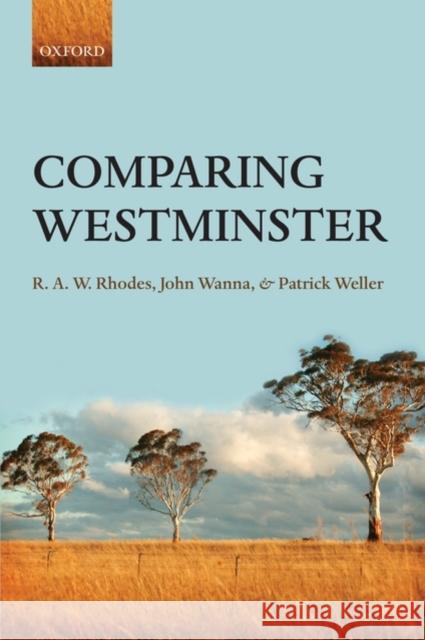Comparing Westminster » książka
Comparing Westminster
ISBN-13: 9780199563494 / Angielski / Twarda / 2009 / 264 str.
Comparing Westminster
ISBN-13: 9780199563494 / Angielski / Twarda / 2009 / 264 str.
(netto: 282,70 VAT: 5%)
Najniższa cena z 30 dni: 288,10
ok. 16-18 dni roboczych.
Darmowa dostawa!
Comparing Westminster explores how the governmental elites in Australia, Britain, Canada, New Zealand, and South Africa understand their Westminster system. It examines in detail four interrelated features of Westminster systems. Firstly, the increasing centralization in collective, responsible cabinet government. Second, the constitutional convention of ministerial and collective responsibility. Third, the role of a professional, non-partisan public service. And finally, parliament's relationship to the executive. The authors explain the changes that have occured in the Westminster model by analyzing four traditions: royal prerogative, responsible government, constitutional bureaucracy, and representative government. They suggest that each tradition has a recurring dilemma, between centralization and decentralization, party government and ministerial responsibility, professionalization and politicization, and finally elitism and participation. They gone on to argue that these dilemmas recur in four present-day debates: the growth of prime ministerial power, the decline in individual and collective ministerial accountability, politicisation of the public service, and executive dominance of the legislature.
Comparing Westminster concludes by identifying five meanings of--or narratives about--Westminster. Firstly, 'Westminster as heritage'--elite actors' shared governmental narrative understood as both precedents and nostalgia. Second, 'Westminster as political tool'--the expedient cloak worn by governments and politicians to defend themselves and criticize opponents. Third, 'Westminster as legitimising tradition'--providing legitimacy and a context for elite actions, serving as a point of reference to navigate this uncertain world. Fourth, 'Westminster as institutional category'--it remains a useful descriptor of a loose family of governments with shared origins and characteristics. Finally, 'Westminster as an effective political system'--it is a more effective and efficient political system than consensual parliamentary governments. Westminster is a flexible family of ideas that is useful for many purposes and survives, even thrives, because of its meaning in use to elite actors.
"











